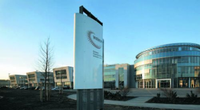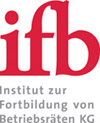 |
|
Welcome to issue no. 1 / 2011 of EWC News. 10th April 2011
|
|
The
training and consultancy network
"euro-workscouncil.net"
EWC
News appears four times a year.
You can find past issues in the newsletter archives.
|
|
1. Home stretch for new EWC
legislation
|
|
German Bundestag passes new EWC legislation
Social-democrats demands for harder sanctions rejected
On 22nd March the SPD faction of the Bundestag proposed an amendment for not only tougher penalties for violation of EWC rights but also an entitlement to injunction and a guaranteed right of access to foreign business premises. The amendment was rejected on 6th April 2011 by the CDU/CSU and FDP majority in the committee on labour and social affairs. The government coalition wanted only a "word-for-word transposition" of the Directive. This freed the way for the second and third hearings one day later in the plenary session of the German Bundestag. The committee on labour and social affairs had already held a hearing with experts on 4th April 2011. Provisions for extensive training rights
The contents of the draft legislation was also the main focus of a conference organized by the training and consultancy network " euro-workscouncil.net " on 24th January 2011 in Hamburg. Ralf-Peter Hayen from the federal office of the German trade union confederation DGB described the strengths and weaknesses of the bill from a trade union standpoint. Of particular interest is the extensive right to training. In the future and independently of their country of origin, all EWC members of German companies will have an individual right to go for training following a resolution of the EWC, such as provided for German work council members according to German labor law. These provisions of the German EWC legislation have not been matched in any other EU country. Current events on new legal situation for work council members
Exceptional transposition of the EWC Directive in Austria
The Austrian legislation surpasses the European Union Directive on important points: such as a clearer definition of "transnational issues", EWC members have a right to access employment sites in other countries and all existing agreements conform without exception to the new standards of information and consultation. Following texts are available only in German:
New legal situation in Belgium too
The Belgian legal situation is of great importance for the entire EWC landscape since Belgium stands, in terms of figures, in fourth place behind Germany, France and the UK. More than 100 European works councils operate under Belgian law, of which only 40 are Belgian companies. The remaining come from the UK, Switzerland, the USA and other parts of the world.
EWC not chaired by employer
Although Belgian (as well as French) works councils are chaired by the employer, this does not apply to European works councils. Under Belgian law the EWC is a pure employee representative body whereas in France the EWC is chaired by the employer.
Other countries: current situation
|
|
2.
Is
Renegotiation of existing EWC agreements necessary?
|
|
The Directive is only applicable to one in every two European works councils
A first verification must be made as to whether the EWC agreement currently valid in the company at all comes under the scope of new Directive. The new legislation does not apply in following cases:
431 European works councils were created under the provisions of article 13 of the old Directive. In a considerable number of companies changes were made to the EWC agreement during the transition period between June 2009 and June 2011. As a result more than half of the 978 European works councils in existence today do not fall under the new legislation. Why has the majority been excluded from the new standards?
When does the new legal situation apply automatically? In the following cases, which concern approximately half of all European works councils, the new EWC legislation is automatically applicable:
If the European works council falls under the new legislation, the renegotiation of the EWC agreement is not strictly legally necessary. It is advisable however for practical reasons to integrate the new standards into the text of the agreement and to document the employer’s signed "commitment" to a better operation of the EWC. In particular this applies to the size and number of meetings of the steering committee.
On 7th January 2011 the European Commission released an experts’ report on the individual chapters of the new EWC Directive. It was edited by a team including both employer as well as trade union friendly representatives and can therefore be of great use as a reference for legally disputed cases. It can also be helpful during renegotiation of EWC agreements. In May 2010 the European Trade Union Institute in Brussels released its own legal evaluation (see report in EWC News 2/2010). |
|
3.
Transnational
collective agreements
|
|
Textile group regulates long-term employment planning
The agreement provides for the creation of an European works council task force for strategic personnel planning, in particular for restructuring ("Anticipation Task Force"). It consists of five employee representatives from different countries and meets twice annually. The agreement contains operational objectives for each individual country and defines a time window. A similar agreement was also concluded in June 2009 for the electronics company, Thales (see report in EWC News 2/2009).
DBApparel established its EWC under French law in 1996 and has been owned since 2005 by a US financial investor. The group manufactures and distributes underwear with more than 5,000 employees in France, Italy, Germany, Spain, the UK and Eastern Europe.
On 24th February 2011, in Paris, the European Metalworkers Federation (EMF) concluded an agreement with central management of Alstom, the French metal industry group, on job security in times of crisis. It covers 30 European countries and is valid for three years. It was initiated following the announcement of downsizing in the power plant manufacturing division.
In November 2010 an action day at German sites had forced negotiations (see report in EWC News 4/2010). Beforehand central management had stopped implementing any measures so that the consultation procedure with the European works council could be correctly concluded. There were also strong protests in Switzerland, where Alstom is one of the most important industrial employers (see report in EWC News 3/2010). Besides power plants Alstom also manufactures railway vehicles, such as the French high-speed train, TGV.
A comparable French agreement for Alstom from 2006 served as a basis for the pan-European agreement. Redundancies are to be avoided through a series of measures and employee skills further developed. Examples of good practice, e.g. Italian geographical mobility and reduced working hours in Germany, are integrated at the European level. The agreement takes a similar approach to that of the steel group, ArcelorMittal, from November 2009 (see report in EWC News 4/2009). Moratorium in power plant construction, clear-cuts in the railway vehicle production
All redundancies in Alstom Power have been frozen until the next EWC meeting on 20th April 2011. Following the nuclear disaster in Japan central management wants to examine possible development of new markets for conventional power stations and thus additional employment within Alstom. The moratorium does not however apply to Switzerland. Things look completely different in the transport division: at its’ meeting, held on 22nd March 2011 in Paris, the EWC was informed about the slashing of 1,380 jobs in Germany, Spain and Italy of which half come from the German Salzgitter site. Additionally the bodywork is to be relocated to Poland, which would lead to further cuts. The following texts are available only in German:
European-wide agreement on personnel planning
Following a first anti-discrimination agreement signed in November 2006, the energy group undertook a project together with the EWC to examine its personnel policy in all European locations (see report in EWC News 1/2009). With this new agreement Areva follows the example of the French electronics company, Thales (see report in EWC News 2/2010).
|
|
4. Recent
court decisions
|
|
The European works council of Avaya obtained an exceptional settlement on 13th January 2011 from the labour courts in Frankfurt (Germany). The legal dispute was triggered by a restriction to British EWC members’ rights to time-off. The US company, offering telecommunication services and data networks, concluded a EWC agreement after a merger in 2007 under German law.
Since the difficulties in the United Kingdom could not be resolved otherwise, the Italian EWC chairman turned to the labour courts in Frankfurt/Main. An oral negotiation took place on 12th November 2010. Following the suggestions of the court, central management and the EWC reached an agreement that all EWC members are to have time-off "as is necessary" and not with a fixed time allowance. This also has an impact on the definition of performance figures for employees who are elected to the EWC. There can no longer be any appeal against this ruling which now applies to all European countries.
Although new time-off regulations for employee representatives have been in force since January 2010 in the United Kingdom (see report in EWC News 3/2009), in practice there are problems over and over again. The outcome of this labour dispute can therefore be taken as a role model for many European works councils.
Which language for the work council?
On 3rd March 2011, a Berlin labor court ruled that German works council members have the right to training delivered in their native language. The case actually concerned two US citizens who did not have sufficient knowledge of the German language. In order to exercise their mandate, they requested to participate in an English-language introductory seminar. According to the court the employer must bear the higher cost of the training.
In 1993 the regional labor Court in Hessen ruled that the works council has a right to German language documentation. Any English-language documents must be previously translated by the employer. In 1997 the local labor court in Frankfurt am Main also ruled that a works council has a right to translation and interpretation. Following texts are available only in German:
Right to strike strengthened in the United Kingdom
|
|
5. New EWC
agreements
|
|
New EWC in food industry
Meetings are chaired by the employer with five Finish representatives, two representatives for each of the three Baltic States and one each for Sweden and Norway. Three plenary sessions are held every two years with at least three meetings of the steering committee which is composed of five employee representatives. The rules of the EWC agreement are still based on the standards of the old European Union Directive.
Worlds’ second largest ophthalmic lens manufacturer establishes EWC
The European works council consists of 14 members and represents 3,300 European employees. Three seats each are attributed to Germany and France, two each to Italy and Hungary and one further seat each to the UK, Ireland and Portugal. Countries with fewer than 50 employees are represented by one common representative. The steering committee is made up of four members. Noteworthy advantages of the agreement: the EWC can establish working groups, has access rights to all branch sites and benefits from precisely defined consultation rights in the case of restructuring.
French supply and transportation group adapts agreement
Its’ consultation rights go beyond those provided for in the new EWC Directive. The tasks of the national committees for social dialogue have also been reinforced and they are now able to meet twice annually. These were created in countries where no central or group works council existed (e.g. Spain). This system was also of great practical importance in Germany since there is no national works council structure covering the individual divisions.
On 3rd March 2011 the merger between Veolia’s transport division and Transdev, which was already announced in December 2009 (see report in EWC News 4/2009). was finalized. There is however, up to now, still no dispositions for a possible merger of the two European works councils. Further EWC agreements are available for download on a special website.
|
|
6.
Highlights from the EWC agenda
|
|
French EWC intervenes in Belgian labor dispute
This situation provoked an extraordinary meeting of the EWC on 16th and 17th December 2010 in Paris. Although only one country was involved, central management recognized the prerogatives of the EWC and, within the consultation procedure, agreed to reveal detailed financial data from Belgium and to pay for a business analysis. In the case of Brink’s therefore, the standards of the new EWC Directive are already in practice. Brink's has a default EWC in place since November 2009 under French law (see report in EWC News 4/2009).
The French media group Lagardère plans to sell their international magazine division with 5,000 persons employed in 45 countries. When this was reported in the press, the French group’s work council made two unsuccessful demands for the convening of an extraordinary EWC meeting, according to a press statement from 17th December 2010.
Once it became known, on 31st December 2010, that discussions on the sale would be carried out exclusively with the US media group Hearst, the EWC secretary threatened with legal action in a letter to central management on 18th January 2011. At the same time the competent French works council also threatened not to complete the consultation procedure, as long as the EWC was not sufficiently involved. French employers are only allowed to implement their plans once a consultation procedure has been correctly concluded, otherwise they risk to be stopped legally. As a result an extraordinary EWC meeting was convened for 9th March 2011. Lagardère has a EWC in place since 1996 under French law.
Metro accepts monitoring committee
While many other companies have already concluded international framework agreements with trade unions, in 2005 Metro limited itself to unilateral management principles. Now it has been announced that central management is ready to create a parity-based monitoring commission with the EWC. |
|
7.
Focus on mergers and takeovers
|
|
In August 2010 the state-owned German Rail (Deutsche Bahn) bought the private British transport group Arriva, which operates bus and railway services in twelve EU countries. The acquisition was approved by the European Commission under the condition that the German subsidiary, with around 3,100 employees, would be sold. As a result, since December 2010, the railway company PEG, the operating company of Metronom and other parts of the German Arriva group belong to the Italian state railway FS and to a financial investor in Luxembourg.
Arriva established a EWC in 1999 under British law. Deutsche Bahn was the first German company to have a default EWC established in 2005 without negotiation of a EWC agreement. One year later central management signed an agreement on the standing rules and responsibilities of the EWC. The legal status of the European works council is therefore comparable to that of the US company, Brink's (see report in EWC News 4/2009).
At its’ last meeting, held from 19th to 21st October 2010 in Berlin, the EWC of Deutsche Bahn decided to negotiate with central management on a new distribution of mandates. Up to now both European works councils continue to work separately in parallel to each other. From now on, a few members of the steering committees participate in each other EWC meetings respectively.
Hostile takeover - trade union for, works council against
While the works council was fighting with Hochtief’s management against the takeover, the IG BAU trade union was holding “secret negotiations" (quote from the works council). The IG BAU union justified this as follows: The works council is the dialogue partner of the employer. However trade unions are responsible for discussions with investors.
The result is an agreement signed on 21st December 2010 with the potential new owner, and according to which, company headquarters will remain in Essen (Germany) and no employees will be made redundant until the end of 2013. The IG BAU trade union is recognized as the exclusive wage bargaining party and HR directors are to be appointed only after agreement of the trade union. ACS explicitly excludes the transformation into a European company (SE). In January 2011 labour lawyers discovered that the agreement is not legally binding. Nevertheless the conflict between trade union and works council could be settled on 21st January 2011. The following texts are available only in German:
In the meantime ACS has acquired more than 43 per cent of Hochtief. In the shareholder’s meeting on 12th May 2011 a divided vote for the seats on the supervisory board is to be expected. Hochtief’s EWC, established in 1996, would be dissolved after a merger. Since ACS does not yet have a transnational employee representation body, a EWC would have to be set up there. The situation is similar to that of the cement company Buzzi Unicem at the time (see report in EWC News 2/2008).
German Telecom sells US subsidiary
While Telefónica accepted world-wide social minimum standards in an international framework agreement signed with the trade unions (see report in EWC News 4/2007) and France Télécom established a World works council in June 2010 (see report in EWC News 2/2010), central management of Deutsche Telekom have refused to take on any social responsibility outside Europe. As recently as September 2010, central management came under criticism from a human rights organization for the violation of international labour standards in the USA (see report in EWC News 3/2010). As a consequence the International Trade Union Confederation (ITUC) started a campaign in T-Mobile in the USA on 4th March 2011 with its own web site in four languages. |
|
|
|
Health and Care groups in EWC focus
The study identifies ten EWC-eligible companies, of which only two have created a European works council. Scandinavia is a regional focal point of the industry. Some of the companies mentioned are owned by financial investors. In June 2006, the Swedish clinics group, Capio, created the first EWC in the private health sector.
On 20th January 2011, the European Foundation for the Improvement of Living and Working Conditions in Dublin released the results of a survey on information and consultation procedures within companies. It is based on detailed reports from 26 European countries. A EU Directive from 2002 made it mandatory to inform and consult the workforce. This led to the very first legislation on the establishment of employee representation bodies in the United Kingdom and in Ireland, as well as in central and Eastern Europe.
New European Union report on the development of the labour relations
|
|
9. The view
beyond Europe
|
|
On 13th December 2010, Swedish trade unions signed an international framework agreement with central management of Electrolux in Stockholm, guaranteeing fundamental labor standards for 50,000 employees world-wide. Of noteworthy interest is an annexed protocol, which excludes any encouragement of "yellow" trade unions by the employer as well as the activities of “trade union busters”. In this respect, the domestic appliance manufacturer, to which AEG also belongs, demonstrates a greater social responsibility than for example Deutsche Telekom or Deutsche Post (see report in EWC News 3/2010). Union busters are predominantly used in the Anglo-Saxon cultural circles to prevent the establishment of employee representation (see report in EWC News 3/2010). EWC chairman supports employee representation in South Africa
General Motors on the road to World works council Following the failure of the planned sale of Opel to the automobile supplier Magna (see report in EWC News 3/2009) and the closure of the Antwerp plant at the end of 2010 (see report in EWC News 3/2010), the European works council members are working even closer together with their colleagues outside Europe.
Framework agreement in publishing terminated
|
|
10.
Interesting
websites
|
|
The EWC of Pfleiderer, a wood processing group, is presented on the Pasoc project website. This project started in October 2009 and sponsored by the European Union, was aimed at strengthening co-operation between employee representatives from Germany, Poland and Sweden. A short term goal was the conclusion of a Social Charter with central management, which took place in November 2010 (see report in EWC News 4/2010). Following texts are available only in German:
Social-democratic foundation supports trade union politics
The information network for labour mobility in the construction industry has been on-line since 8th February 2011. Altogether 16 countries are individually presented, including Switzerland. On this website construction workers are able to get information on the most important aspects of working conditions in their destination country.
News from Belgium
We have arranged various additional interesting websites into a collection of links.
|
|
11.
New
publications
|

A 630 page dissertation was published in January 2011 which provides an in-depth analysis of labour relations in the largest and most economically important Eastern European country acceding to the EU. After an overview of the historical development of the Polish trade union movement two individual chapters deal with the radical change process of the 1980s and the emergence of today's structures starting from 1990. Poland has been slower than the other European Union acceding countries to put in place a legal basis for works councils. The works council legislation in force today was only first introduced in July 2009 and the practical experience is still often lacking (see report in EWC News 3/2009). The book is available only in German.
This publication on labour legislation, released in January 2011 has not been written from an employee standpoint. Nevertheless the author provides an up-to-date legal insight into the changes in collective bargaining rights for the two economically leading countries of the European market – hard facts which may also offer an important source of information for the union friendly public. Whereas in France the legislator has recently strengthened collective bargaining unity as a result of the painful break-up of the trade-union bargaining landscape, in Germany, the Federal Constitutional Court cancelled bargaining unity in June 2010 (see report in EWC News 2/2010). Both countries therefore continue to develop their collective bargaining system in exactly opposite directions. The book is available only in German.
In January 2011, the Friedrich Ebert Foundation published an updated review of the Hungarian trade union movement. A national right-wing, and trade union-hostile coalition has been governing in Budapest since May 2010. Altogether the six union confederations represent only a membership rate of 12%. Collective agreements apply only to approximately 40% of the Hungarian workforce. The influence of trade unions in companies is small. Already in 1992, Hungary was the first country in central and Eastern Europe to have introduced works councils, which, to a large extent, had to manage on their own due to weak union presence. The Friedrich Ebert Foundation review now formulates some propositions for the reorientation of Hungarian trade unions. The following texts are available only in German:
While in Germany board games like "Works council snakes and ladders" support employee participation, the French card game "transition plan" caused an uproar. Each of the 52 cards represents an employee. The winner is the person who is first to dismiss all of his employees, so that the company can be closed and relocated outside France to a totalitarian low wage country. It is really so simple to become a successful manager and to finish the game as the winner.
French trade unionists are already proposing that the game should be included in the curriculum of business schools: "to denounce that capitalism has gone mad". The card game is manufactured by an ecological and sustainable oriented game publisher from Brittany.
We have arranged further technical literature on a literature webpage.
|
|
12. Training and Consultancy
Network "euro-workscouncil.net":
Examples of our work
|
|
European Work Councils Conference in Hamburg for the third time running
Over 50 employee representatives from 29 different companies met together with trade union officers, lawyers and scientists from five countries in the annual EWC conference held on 24th and 25th January 2011 in Hamburg. For the first time the meeting was simultaneously interpreted in English and French. More than a third of the participants came from the metal and electrical industry, companies in the chemical and pharmaceutical sector and logistics were also strongly represented. In addition participants came from insurance, food manufacturing, telecommunications, retail and market research.
During the first day focus was put on the German transposition of the EWC Directive (see above). Afterwards experts from the bearing manufacturer, Schaeffler (see report in EWC News 1/2008) and the electronics group, Nokia Siemens Networks (see report in EWC News 3/2010) reported on experiences in their European works councils.
The second day was then totally devoted to labour relations in the United Kingdom with practical examples from the insurance company Alliance and the telecommunications company BT. A report on the subject was given by the German AiBplus technical magazine in its 2/2011 edition. Following texts are available only in German:
Automobile supplier on the road to EWC renegotiations
EWC training in energy group
Pharmaceutical group: handling restructuring better
|
|
13.
Current
Seminar Schedule
|
|
The training and consultancy network "euro-workscouncil.net" has been organizing and delivering conferences and training seminars for the members of European works councils, SE works councils and special negotiation bodies since January 2009. So far 221 employee representatives from 106 companies have taken part (representing about 11% of all companies in Europe with an established EWC). The majority of participants came from Germany and France, but a further nine countries were represented. For the year 2011 a training brochure is now available in German, giving an overview of the planned events:
On
6th June 2011 the new EWC
legislation will come into force. We would therefore like to offer a
prompt opportunity for a detailed examination of the legal text in its
final version. To this end a EWC legislation seminar will take place on
6th and 7th June 2011 in Montabaur castle.
EWC Initiation days
For newly elected European works council members or for work council members seeking information on the establishment of a EWC, we are again offering an introductory seminar. It will take place from 7th to 9th June 2011 in Montabaur castle.
English language courses for works council members 19. – 25.06.2011 in Eastbourne (on the English channel coast) 13. – 18.11.2011 in Esher Place (near London)
French-German Conference in Paris
Why a conference in Paris?
The philosophy behind information and consultation in the EU Directive on European works councils as well as employee participation in the European Company (SE) is closely tailored around French industrial relations. An exact knowledge of the subtleties of the French model is indispensable for growing a European works council from a song and dance act into a fully fledged representative body. Participation to the conference is possible according to the provisions of the new EWC legislation on training. Simultaneous interpretation will be provided in German, English and French. Following texts are available only in German:
German Belgian EWC conference in Brussels 28th and 29th September 2011
German British EWC conference in London 27th and 28th October 2011
Following the coming into force of the new EWC legislation it is advisable in many companies to renegotiate the EWC agreement. To this end we are offering a workshop to enable an exchange of experience and to make a critical analysis of participant’s EWC agreements. The workshop will be held from 10th to 12th October 2011 in Eisenach on the Wartburg castle (photo). English interpreters will be available on request.
Seminars of the Institute for Further Education of Works Councils (ifb)
Basic seminar: The European Works Council from A to Z 07. – 11.11.2011 in Munich
Advanced seminar and idea exchange 21. – 25.11.2011 in Stuttgart
In 2011 the training and consultancy network "euro-workscouncil.net" will be organising another SE workshop. Since the number of SE works councils is still relatively small, the next date will be coordinated with any interested participants by telephone. Anybody interested should please fill in and return the following questionnaire.
In-house events Please find a survey of possible subjects of in-house events here: |
|
14. Imprint
|
EWC
News is published by: Training
and consultancy network "euro-betriebsrat.de" GbR Von-der-Tann-Straße
4, D-20259 Hamburg www.euro-workscouncil.net (English) www.euro-ce.org
(French) Authors
collaborating on this
issue: Werner Altmeyer, Sandro Maier, Bernhard Stelzl
Distributor
of the German
version: 14,938 readers Distributor of
the English version: 2,057 readers Distributor of
the French version: 2,196 readers Newsletter
archive: www.ewc-news.com
We are always pleased to
receive comments and suggestions in relation to this newsletter as well
as reports on your EWC activities. Please write us at: info@euro-workscouncil.net
www.euro-betriebsrat.de (German)
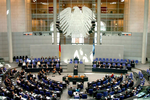





 Legal
support material from Brussels
Legal
support material from Brussels On the 16th December 2010 in Rueil Malmaison
near Paris a framework agreement was concluded covering the
anticipation of employment matters in DBApparel, representing the first
agreement of this kind in the textile industry.
On the 16th December 2010 in Rueil Malmaison
near Paris a framework agreement was concluded covering the
anticipation of employment matters in DBApparel, representing the first
agreement of this kind in the textile industry.

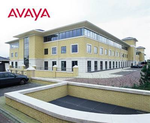




 On 12th November 2010 the Belgian management of
Brinks, the US security service group, informed the local work council
of the forthcoming liquidation of the Belgian company. This was caused
by the trade unions refusal to agree on wage cuts and by the subsequent
strike action in protest against the restructuring plan.
On 12th November 2010 the Belgian management of
Brinks, the US security service group, informed the local work council
of the forthcoming liquidation of the Belgian company. This was caused
by the trade unions refusal to agree on wage cuts and by the subsequent
strike action in protest against the restructuring plan.
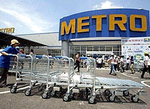














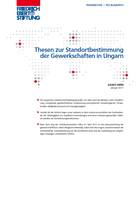
 Card game – source of outrage
Card game – source of outrage

